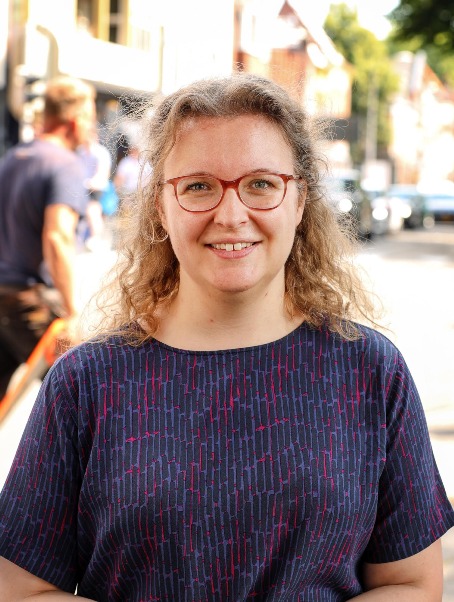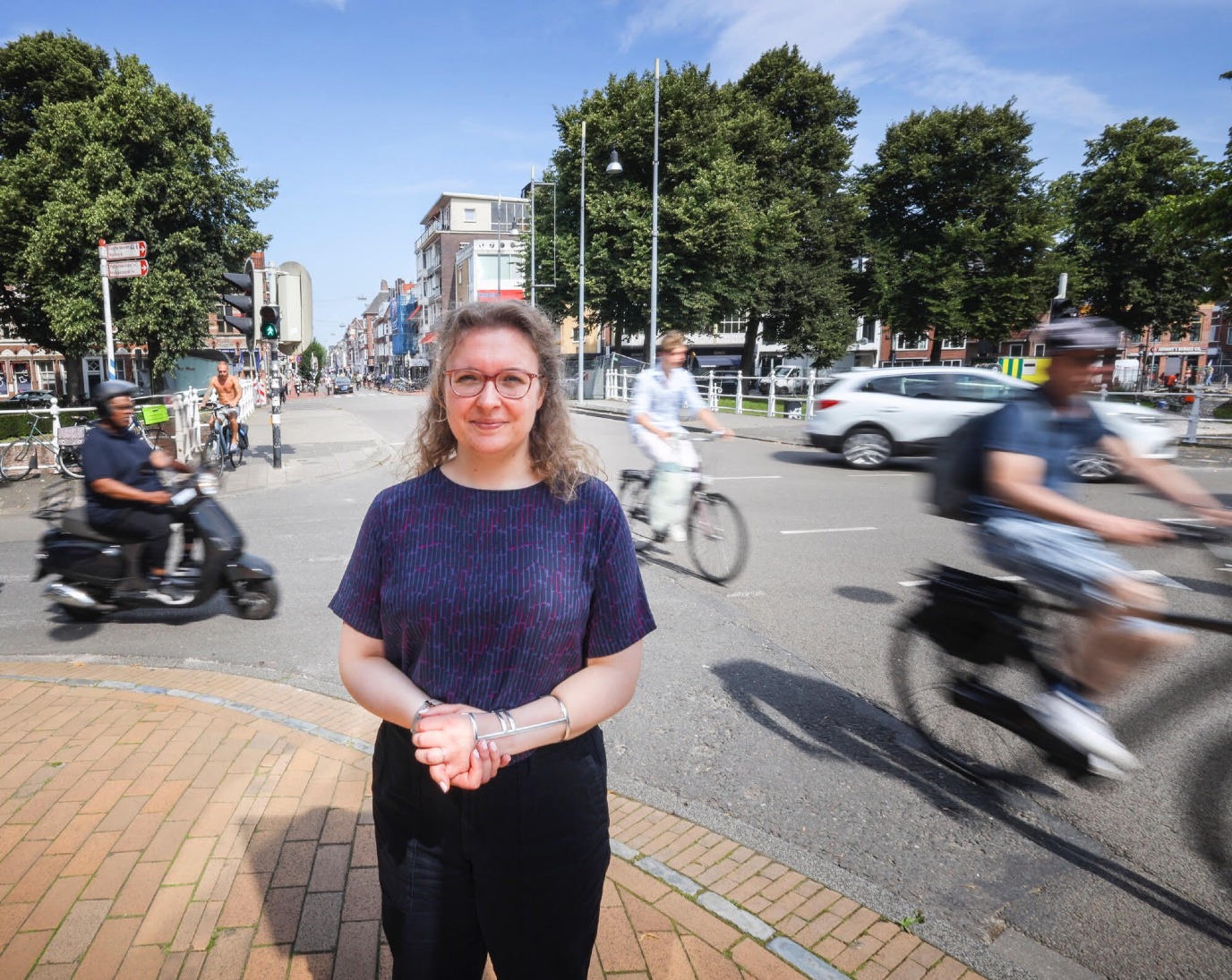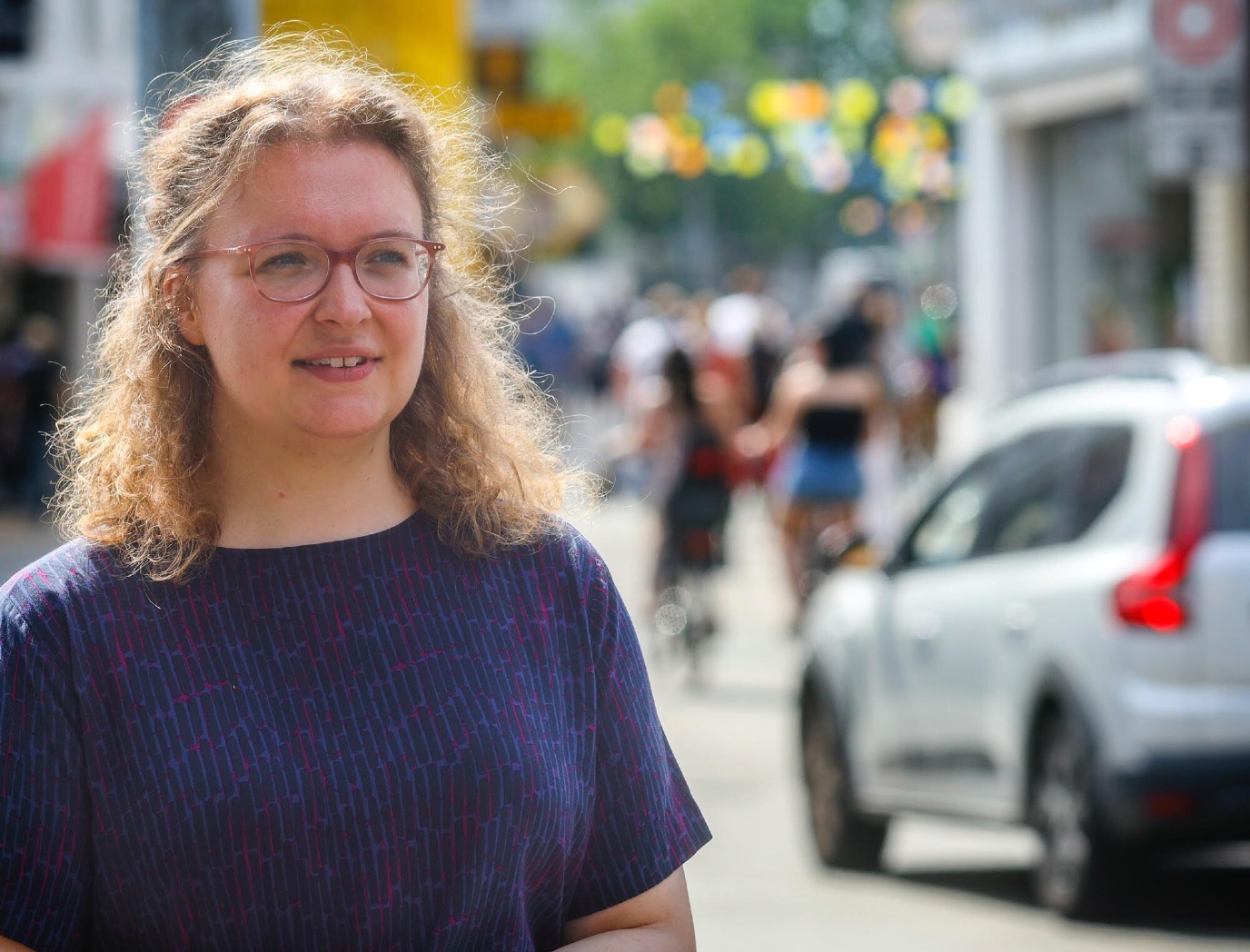Vehicles without a driver: who is liable if things go wrong?

In the coming years, self-driving cars may increasingly become part of daily life. They are already driving around in China. But who is liable if things go wrong? Nynke Vellinga (Faculty of Law) still sees many obstacles: ‘Traffic law is based on the driver. This law becomes obsolete in the case of self-driving cars.’
Text: Thomas Vos, Corporate Communication UG / Photos: Henk Veenstra
KITT—Michael Knight’s car in Knight Rider—Batman’s Batmobile, or the robot taxi from Total Recall: we have been dreaming of autonomous cars for decades. In recent years, they have become reality thanks to brands such as Google and Tesla. However, there is a huge gap when it comes to legislation. Vellinga, senior researcher at the Faculty of Law, investigates how this can be properly regulated. She co-authored many advisory reports for the government and other authorities.
Doing a PhD
She started her PhD research in 2016: ‘During that time, companies such as Google were conducting promising experiments involving self-driving transport, but there was not yet any form of legislation for self-driving cars in the Netherlands, even though self-driving cars could theoretically reduce road accidents. In more than 90% of cases, we are the ones causing the accident,’ says Vellinga. ‘However, self-driving cars also make mistakes, of course.’
Awake drivers
Her thesis was published three and a half years later. Vellinga: ‘The conclusion was that all kinds of things needed to be changed because there were no laws yet that we could fall back on. And now I’m working on how to shape those laws, haha. Meanwhile, the EU is taking steps. There are now cars allowed to drive in the EU that are taking over more and more driving tasks from the driver. That’s why those cars have systems that keep an eye on you, the driver, to see if you're still awake.
Traffic law becomes obsolete
These experiments require different autonomous driving systems. Vellinga: ‘That is not very advanced yet. It’s not like you get in the car and wake up on the Costa del Sol. But there will come a point when I, as a lawyer, will say: “This car does not have a driver anymore.” And then the whole traffic law becomes obsolete, because it is aimed at the driver. A driver must give way to someone coming from the right. A self-driving car does not have to do so, according to the law. Self-driving cars are, of course, made by manufacturers with the current traffic rules in mind, but if things go wrong, it is difficult to hold anyone liable.’
Scheemda
In the Netherlands, testing is already taking place on public roads as well. A few years ago, in Scheemda, a van drove from a bus stop to the hospital and back. Vellinga: ‘That was a very limited test and it was not widely communicated. The best test setting is in a normal traffic environment. The Ministry of Infrastructure and Water Management, together with the Netherlands Vehicle Authority and others, determines whether and where you can run tests, based on all kinds of requirements. These conditions must ensure that no accidents happen, but here too it can mean that there will be no criminal prosecution if things go wrong nonetheless.’

Multidisciplinary
Because it is still a new phenomenon for which no legislation exists, Vellinga finds herself in a niche area. Moreover, traffic law is unique. Vellinga: ‘Traffic law is an amalgamation of many different laws, such as private law and technology law. It does not fit into a defined area and is multidisciplinary. This sometimes proves to be difficult, but it also allows me and my colleagues to draw each other’s attention to new developments. I’m trying to go to a lot of congresses about technology to make sure I’m aware of the possibilities and limitations. That's where I get in touch with engineers. They are sometimes a little suspicious, because they are afraid that I have come to point out the rules to them. In the end, however, we have good conversations and they also realize that we need each other.
Solutions
Ultimately, Vellinga wants to make an important contribution to the legislation for self-driving cars by advising the government. She already sees multiple directions for solutions: ‘For example, you can look at how the Shipping Traffic Act is put together, because on the water it is not unusual for the skipper to be away from the helm. This provides inspiration for new traffic legislation. In the case of compensation for an accident caused by a self-driving car, there are possibilities to adapt the compulsory motor vehicle insurance. In cases where a self-driving vehicle causes damage due to a defect, the damage can then still be compensated.'
Patience
It’s a matter of patience. Vellinga: ‘I think we have to consider a period of at least five years. At the international level, it is still quite rudimentary, although attempts are being made. In the Netherlands, the Minister has now reached the point where there will be a process to review traffic law. But he will not share more information about that until December. In other words, we’re just getting started. A legislative process always takes a lot of time, so five years will fly by. Luckily, I’m still far from tired of this subject. It’s a very tangible subject because everyone has to deal with traffic rules eventually.’
Young Academy
Vellinga also wants to have influence in other areas. On 18 September, she will be installed as a new member of the Young Academy Groningen (YAG). Vellinga: ‘I knew the YAG from a number of lunches for young researchers, which I found very useful. But what appealed to me above all is that the YAG is committed to driving new policies within the UG in various areas. I would like to contribute to this.’

Health challenges
In particular, Vellinga wants to do this in the area of diversity and inclusion: ‘I have already set up a group for people with health challenges at my Faculty. I am chronically ill myself, which means that I have health challenges as well. I have to take medication at set times, for example, which I usually do during lecture breaks. I've always had to deal with illness. As a result, during my studies, I was sometimes unable to attend all of the lectures, which meant that I did not comply with the attendance requirement and was therefore given a lower grade. This is not a lack of goodwill on the part of teachers, but that is how the organization was designed.
Grant applications
As a teacher and young researcher, she also runs into problems: ‘When I write a proposal for a grant from the Dutch Research Council, for example, I notice it. For people with a broken leg or who suffer from burnout, compensation is arranged, but as a chronically ill person, I receive no compensation or extra time, even though I do need that time.’
Playbook
According to Vellinga, her role within the YAG could help to better address this: ‘You have more authority and are better able to hold this discussion. It doesn’t have to be solved all at once, but the closer we get to a point where it is normal for a person with a chronic illness, a disability, or whatever to fall back on, for example, a playbook for grant applications, the better it would be. There are still many obstacles to overcome, but fortunately, I come across many people who are very happy to help and dedicate themselves to making the Faculty and University more inclusive.
More information
More news
-
08 December 2025
Colourful Characters: Bert Röling
